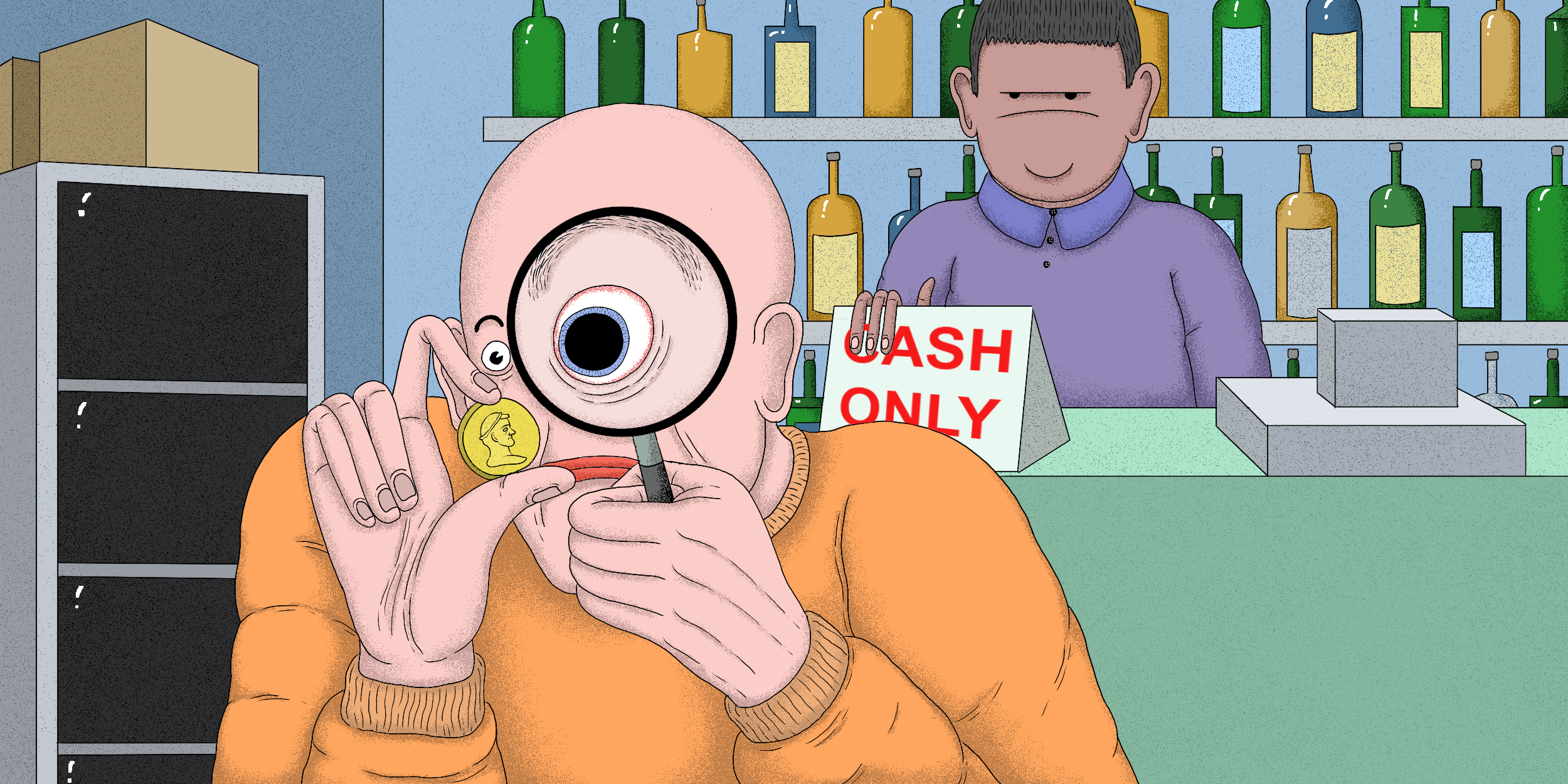As we slide ever-closer to the inevitable automation of each and every job, it’s becoming increasingly clear that practically all university degrees are entirely useless. However, some cause for optimism: certain degrees are more useless than others, guaranteed to completely empty your wallet for three years, before leaving you zero opportunities to replenish it.
As a quick primer on what exactly those are, we asked VICE offices across Europe to lay out some of the most useless degrees on the continent.
Videos by VICE
UK

What is it?
Stand-Up Comedy (MA)
Where can you study it?
University of Kent
Overview
A postgraduate degree in stand-up comedy is perfect for people who believe that constantly talking about how funny they are, while saying literally nothing funny, is perfectly acceptable first date chat. The University of Kent is the only university to offer a course in what it describes as a “vibrant form of popular theatre”. Over the course of a year, you can learn how to write your own material, as well as being offered the opportunity to perform in front of 200 people. Famously, stand-up comedy bookers look for MA certificates when booking acts, so sounds like this one’s worth it if you want to spend 40 years not really making any money at all!
– Nana Baah
Serbia
What is it?
Library and Information Sciences (MA)
Where can you study it?
University of Belgrade
Overview
I’m sure there are plenty of young Serbians who love books and would love to spend three years at the University of Belgrade’s Library and Information Sciences course discovering how to run a library. But the reality is that there are only a handful of libraries in Serbia still standing, and all of them are severely underfunded yet somehow miraculously overstaffed. This discrepancy is because the main way to get in on that sweet library coin is to either be a prominent member of the ruling party, or know somebody who is, as these libraries are run by local governments. And if you have that sort of clout, you don’t really need a degree now, do you?
– Mihailo Tesic
Netherlands

What is it?
Circus Artist
Where can you study it?
Codarts University of the Arts, Rotterdam
Overview
At Codarts, you can specialise in all the great classics of circus performing – from juggling to tight rope walking. But try as you might, you can’t ignore a universally sad truth: the circus is dying. It’s just not what it used to be. For example, most countries have banned – or are in the process of banning – wild animals from taking part. And what’s a day out at the circus if not waiting for a tiger to slip out of its trance and take the sweet revenge it so greatly deserves? Also, thanks to advancements in VR gaming technology, the modern child is incredibly hard to impress – so even your chances of getting booked as a juggling clown for your niece’s birthday party are fairly slim.
– Lisa Lotens
Denmark
What is it?
Performance Design (MA)
Where can you study it?
Roskilde University
Overview
Imagine if a festival director, an entrepreneur and a wedding planner ran into each other at a bar, got drunk and had a threesome. The scientific marvel to result from this three-way DNA exchange would study performance design.
Since 2004, Roskilde University has offered students a chance to bolster their resumes with skills such as “analysis, development and event management for festivals and conferences”. But the Danish events scene is competitive and can only employ so many festival managers and stage directors.
In recent years, many graduates of Performance Design have struggled to secure jobs after uni – part of the reason why the department offering the course has recently been subject to funding cuts. Of the graduates who were able to find employment, very few are working in fields even remotely related to performance, design or event organising. Maybe that’s because the theory in the degree doesn’t prepare a student for the reality? Maybe it’s because you don’t really need a degree to organise an event? Or maybe – as I learned during my time studying performance design – it’s because the degree is more of a laugh than actually useful in any tangible way?
– Kristian Ejlebæk Nielsen
Austria

What is it?
Numismatics (MA)
Where can you study it?
University of Vienna
Overview
Numismatics is the study of ancient gold and silver coins, and modern cash currency.
An example of why this is pointless: check your pockets and your wallet right now. You will likely find that there is no cash in either, because you’re living in 2018 and pay for everything with your card, or your phone, or Paypal, or anything and everything that isn’t physical currency.
This isn’t going to change anytime soon. In fact, eventually – when we all work out what cryptocurrencies actually are – bitcoin will probably replace banks and card payments altogether, just as streaming services killed the CD star. Thus, the research base that the University of Vienna can offer budding numismatists will shrink considerably, if not completely disappear. So if you’re counting on numismatics to help change your fortunes, you might want to cash in on something else.
– Thomas Vorreyer
Italy
What is it?
The Science and Culture of the Alps (BA)
Where can you study it?
The University of Milan
Overview
Ranging from soil science to arboreal cultivations and plant protection, the modules of the Science and Culture of the Alps seem to be inspired by a Yogi Bear episode. Though the degree is offered by the University of Milan, all the lessons are appropriately held in Edolo – a small town on the Alpine slopes of Mount Adamello.
The faculty’s graduates will be eligible to work in local organisations, museums, national parks and protected areas on the Alps – and nowhere else in the world, apparently. Good luck!
– Giulia Fornetti
Poland
What is it?
Political Science (BA)
Where can you study it?
Warsaw University
Overview
I know it’s a bold claim to argue that having a keen understanding of the machinations of politics is a useless skill, but stay with me. Over the last three years, it’s become apparent that being successful in Polish politics requires neither experience nor political know-how. All you need is a gut feeling and the willingness to exploit populist sentiment – an innate skill, and not one you can learn at the University of Warsaw.
For example, back in 2015, as the right-wing Law and Justice party came to power, Paweł Kukiz, an ex-punk rocker with no political experience to speak of, came third in the Polish presidential elections, backed by 20 percent of voters. He achieved this feat thanks to populist slogans about destroying the system, and later founded his own far-right party, Kukiz ’15. For some time, Polish rapper Liroy (real name Piotr Marzec), an alleged porn producer, was a Kukiz party MP.
Those are two examples of what’s going on right now in Poland alone. Look around the world and you’ll notice it’s a global trend.
There’s also statistical evidence that political science is one of the worst ways to spend your university years. According to a study by the NaTemat news agency, there was only one job opening for every 150 political science graduates in Poland. Still, it’s worth noting that both Paweł Kukiz and Piotr Liroy-Marzec lack any kind of higher education, not just a political science degree. So maybe the right way to get into politics is to avoid uni altogether, become a magician, get famous and rule the world. It is 2018 after all.
– Pawel Mączewski
Portugal

What is it?
Peace, Security and Development (MA)
Where can you study it?
University of Coimbra
Overview
Sure, the world is on fire and inching closer and closer to nuclear oblivion, but do you really think you’re going to solve it? According to the University of Coimbra, this Master’s degree aims to deepen conceptual and theoretical knowledge in issues of peace, security, development and humanitarianism. But the university is less clear about the professional options available to graduates. If the course can teach you how to build a safety bunker for the end times, then maybe I’ll reconsider its place on this list.
– Madalena Maltez
More
From VICE
-

Photo: Whiteland Police Department -

Photo Credit: Infamous PR -

Screenshot: Larian Studios, Reddit -

Screenshot: Sony
